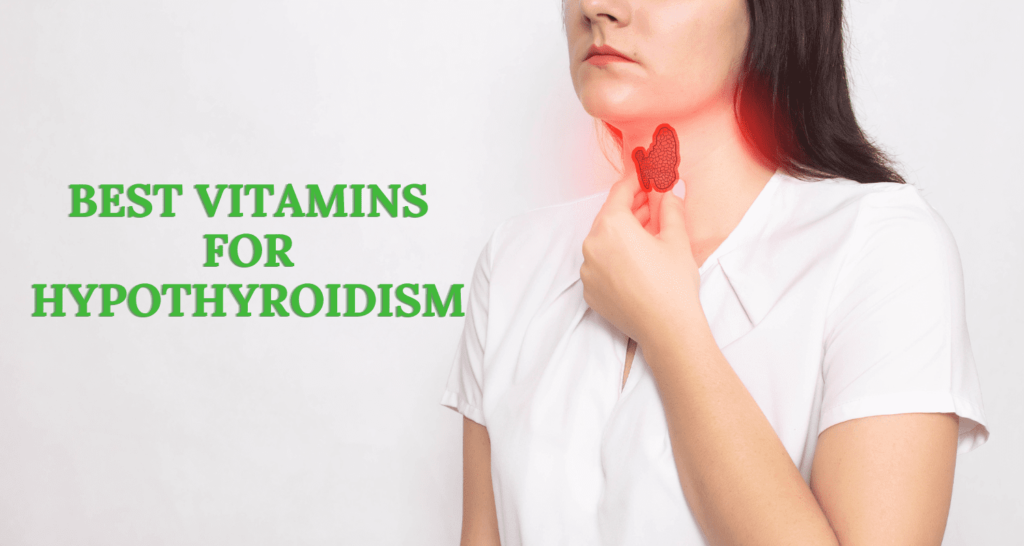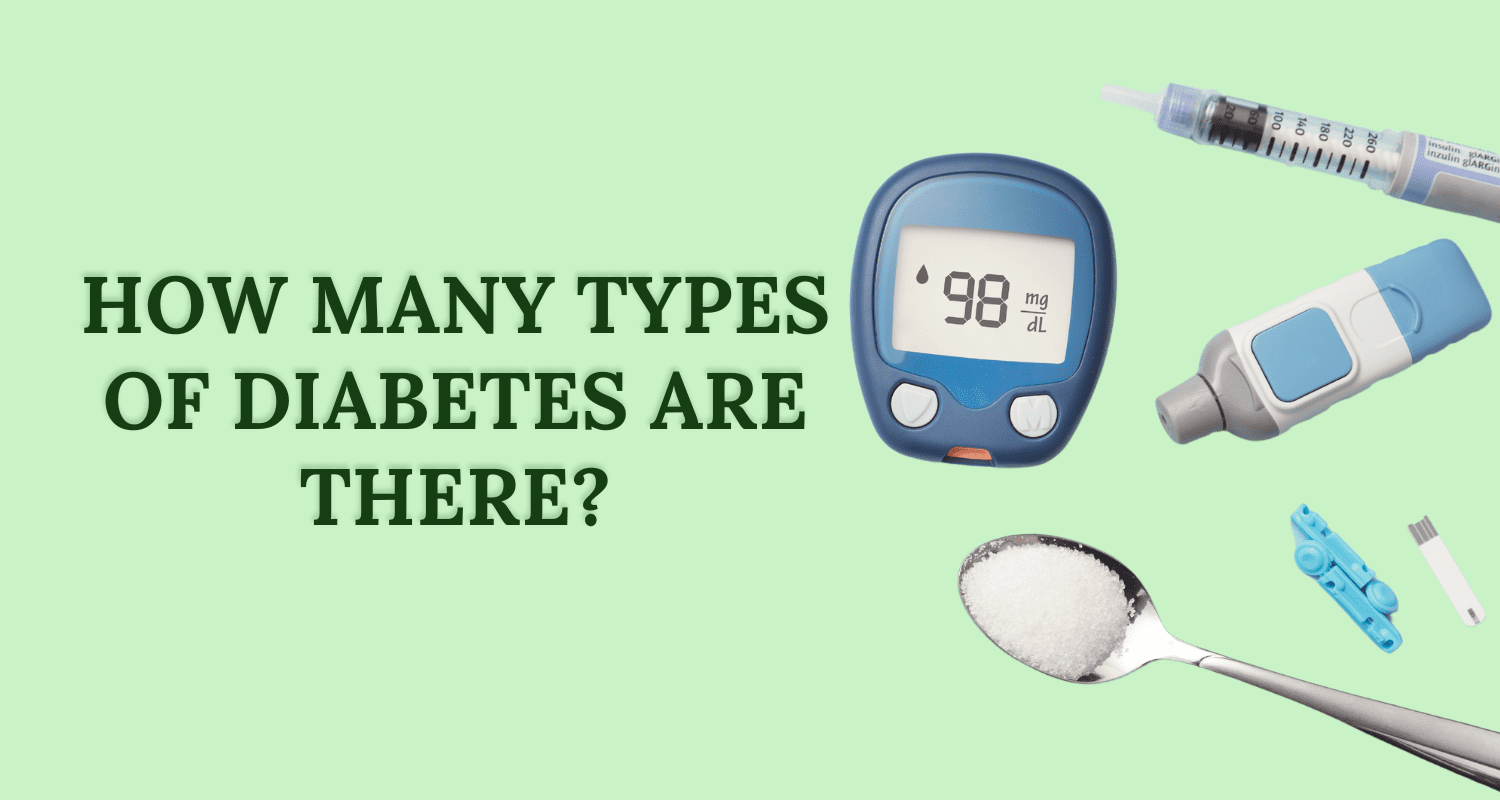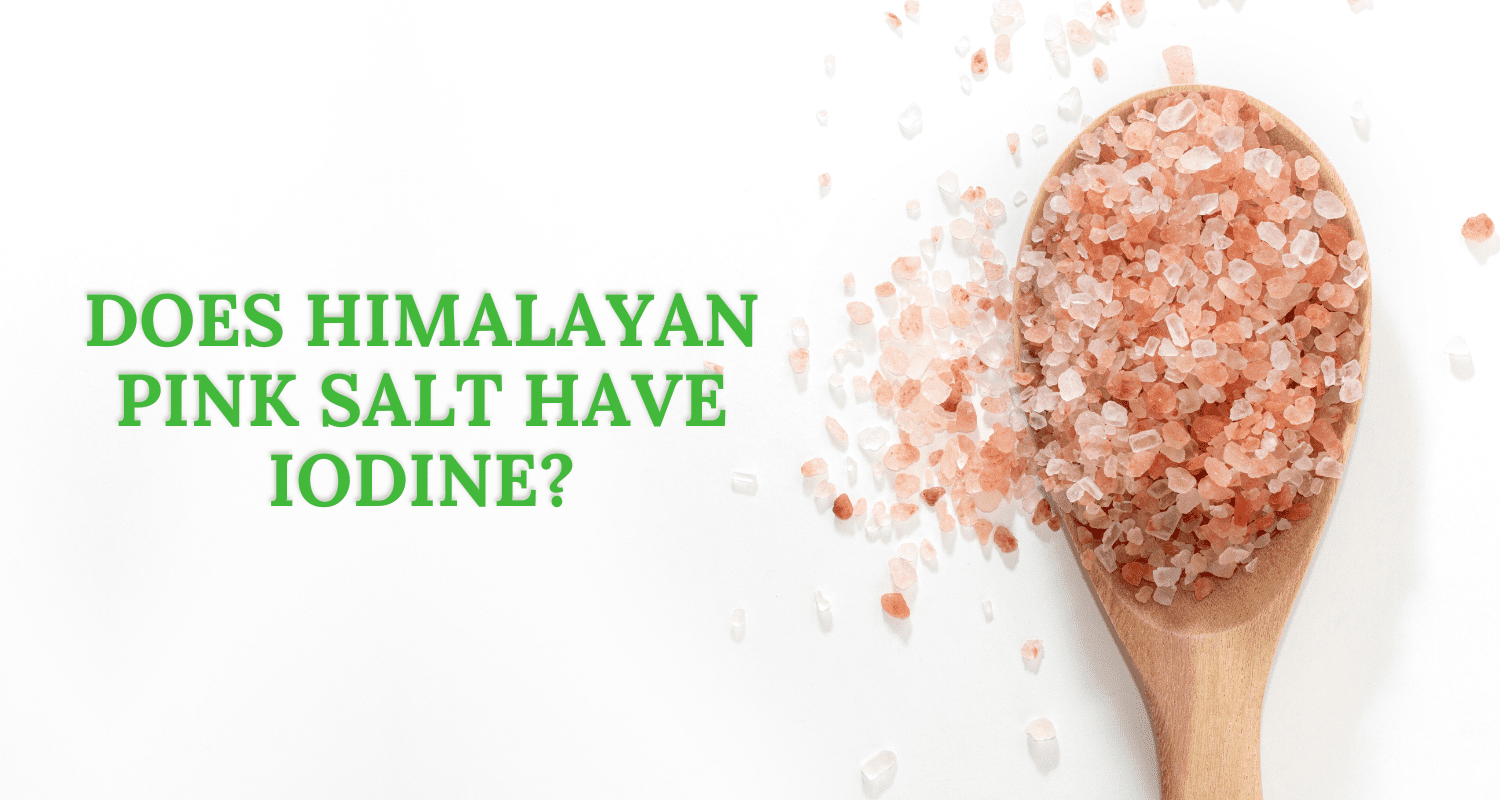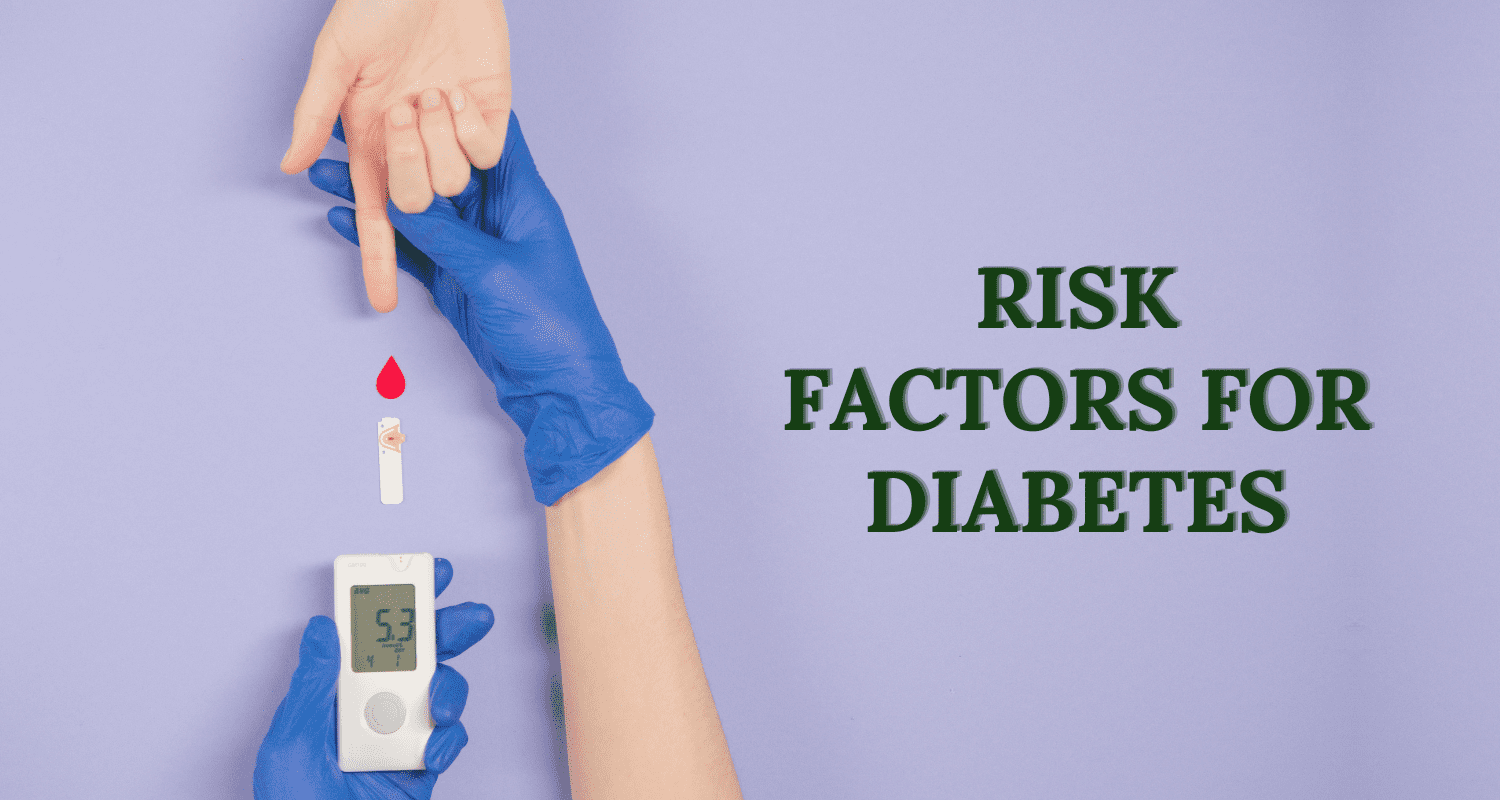Did you know about 20 million Americans have thyroid disorders? Hypothyroidism is the most seen one. This condition happens when the thyroid gland doesn’t make enough hormones. This leads to fatigue, weight gain, and feeling depressed.
Though medication is common for hypothyroidism, certain vitamins and minerals are natural remedies for thyroid health. In this article, we’ll look at the essential nutrients and the best vitamins for hypothyroidism and boosting thyroid health.
Let’s delve into the essential nutrients and the best vitamins for hypothyroidism.
Key Takeaways:
- Consult with a healthcare professional before starting any top supplements for hypothyroidism relief.
- Iodine, vitamin B, selenium, zinc, tyrosine, and vitamin D are essential for thyroid health.
- Good food sources of these vitamins to support thyroid function include seaweeds, whole grains, nuts, and protein-rich foods.
- Supplements can be taken, but it is important to follow the recommended dosages of the best vitamins for hypothyroidism.
- A healthy diet and lifestyle are essential nutrients for hypothyroidism and are crucial for optimizing thyroid function and overall well-being.
The Importance of Iodine for Thyroid Hormone Production
Iodine is vital for making thyroid hormones. These hormones help control metabolism, growth, and development. Without enough iodine, the thyroid gland can’t make enough hormones. This leads to a condition known as hypothyroidism.
So, where does one get iodine? Foods like milk, cheese, poultry, eggs, kelp, and seaweed are rich in iodine. Eating these foods can help your body have enough iodine to make thyroid hormones.
However, too much iodine can be a problem. It can mess with thyroid function and even lead to hypothyroidism. So, taking iodine supplements needs careful thought.
It’s best to talk to a doctor before starting any hypothyroidism vitamins and minerals supplements. They can check your iodine levels and advise you properly. This ensures your thyroid stays healthy.
The Role of Vitamin B in Thyroid Function
Vitamin B is crucial for those with hypothyroidism. It helps maintain thyroid health and balance hormones. For folks needing more vitamin B, a complete vitamin B complex supplement is recommended. Some might also need extra vitamin B12, as shown by blood tests.
You can get vitamin B from different foods to help your thyroid. Eat foods like whole grains, legumes, nuts, and dairy. Meat, fish, eggs, seeds, and greens are also good sources. These foods help keep your thyroid working well.
Adding vitamin B-rich foods to your meals or taking a supplement can help. It gives your body what it needs for a healthy thyroid. This supports your overall well-being.
The Role of Selenium in Thyroid Hormone Metabolism
Selenium is key in making sure our thyroid works well. It helps people with hypothyroidism feel better. One way it does this is by lowering harmful antibodies.
Eating foods rich in selenium is good for your thyroid. Some of these are tuna, shrimp, and salmon. Also, sardines, scallops, lamb, chicken, and beef. Don’t forget turkey, eggs, and shitake mushrooms too.
You can also take selenium supplements to get enough. But, talk to a doctor before you start. They will tell you how much to take. This will help your thyroid without causing other issues.
The Role of Zinc in Synthesizing Thyroid Hormone
Zinc is key in turning thyroid hormones into forms the body can use. It helps keep thyroid function at its best. This mineral aids in making and breaking down thyroid hormones, like T3 and T4.
Zinc can be found in various foods, making it easier to get enough. Seafood lovers can enjoy oysters, crab, and shrimp for a big zinc boost. Mussels and clams are also packed with zinc.
For meat eaters, beef and lamb are solid choices. If you prefer plant-based foods, chickpeas, lentils, and beans are great. Nuts, including cashews and almonds, are rich in zinc too.
Sometimes, food alone might not give you enough zinc. In these cases, taking a zinc supplement could be considered. Yet, it’s important to talk to a doctor before starting any supplements. They can advise on the right amount to take and check for any drug interactions.
Tyrosine and Thyroid Hormone Production
Tyrosine is a nutrient important for making thyroid hormones in the body. It helps build thyroid hormones like triiodothyronine (T3) and thyroxine (T4). These hormones are vital for metabolism, growth, and development.
Eating protein-rich foods is crucial to have good tyrosine levels. These foods are natural sources of tyrosine. This helps your body make thyroid hormones well.
Some good sources of tyrosine include:
- Meat: Chicken, turkey, beef, and pork
- Fish: Tuna, salmon, and trout
- Eggs: Both the egg whites and yolks contain tyrosine
- Legumes: Beans, lentils, and chickpeas
- Nuts: Almonds, walnuts, and peanuts
To keep your thyroid hormones in check, add these protein-rich foods to your meals. Make sure your diet is balanced. Always talk to a healthcare pro for advice that fits you.
Vitamin D and Thyroid Health
Vitamin D deficiency can lead to hypothyroidism. Research shows a link between low vitamin D and poor thyroid function. It’s key for your thyroid and overall health to have enough vitamin D.
You can find vitamin D in foods like fortified milk, yogurt, and orange juice. But these alone might not be enough. Also, less sun exposure, darker skin, and some health issues can raise your risk of not having enough vitamin D.
It is vital to talk to your doctor about whether you need vitamin D supplements. They can check your levels and suggest the right amount to help your thyroid.
Benefits of Vitamin D for Thyroid Health
- Vitamin D boosts the immune system. Its lack can cause autoimmune thyroid diseases like Hashimoto’s thyroiditis.
- It is crucial for turning inactive thyroid hormone T4 into active T3. This step is essential for thyroid health.
- Vitamin D also helps keep bones and muscles strong, which can weaken from hypothyroidism.
Adding vitamin D supplements can boost thyroid health and ease hypothyroidism symptoms. But always listen to your doctor’s advice. Make sure to have regular check-ups to keep your vitamin D levels right.
Keep your thyroid healthy by eating foods rich in vitamin D. And consult with a healthcare expert to keep your vitamin D at the best level.
Other Factors to Consider for Thyroid Health
Maintaining a healthy diet is key for good thyroid health, in addition to taking supplements. The food you eat plays a big role in controlling hypothyroidism symptoms and boosting well-being. It’s important to eat an anti-inflammatory diet.
An anti-inflammatory diet means eating foods that lower inflammation in your body. Inflammation can hurt thyroid function and lead to hypothyroidism symptoms. This diet helps your thyroid work better and may ease some symptoms.
The Benefits of an Anti-Inflammatory Diet for Hypothyroidism
This diet includes lots of fruits, vegetables, and natural foods. These give you important nutrients and antioxidants. They lower inflammation and help your thyroid work best.
Here are the main benefits of this diet for hypothyroidism:
- Reduced inflammation: This diet avoids processed foods, refined sugars, and bad fats that cause inflammation. Lowering inflammation may reduce hypothyroidism symptoms.
- Improved gut health: A healthy gut is vital for overall health and thyroid function. An anti-inflammatory diet with lots of fiber and probiotics helps keep your gut healthy. This is key for turning food into thyroid hormone and using it.
- Enhanced nutrient absorption: Eating unprocessed foods means you’re getting many important nutrients for your thyroid. Absorbing these nutrients well supports your thyroid and boosts energy.
- Maintained stable blood sugar levels: Eating too much sugar can mess with your blood sugar levels, affecting your thyroid. Choosing natural sugars in fruits helps keep your blood sugar steady, helping your thyroid health.
Before changing your diet significantly, talk to a doctor or dietitian, especially if you have health problems or take medicine.
Adding an anti-inflammatory diet to your life helps you manage hypothyroidism symptoms and supports your thyroid health.
Interaction Between Supplements and Thyroid Medication
Many vitamins and supplements help with hypothyroidism. But, some can mess with your thyroid medication’s effect. Always talk to a healthcare expert before adding supplements to your routine. They’ll ensure there’s no bad mix with your medication.
Some supplements that might not work well with thyroid meds include:
- Calcium: Calcium can make it hard for your body to take in thyroid meds. Try taking calcium either two to four hours before or after your thyroid meds.
- Iron: Like calcium, iron can also block your body from absorbing thyroid meds properly. It’s wise to take iron a good few hours away from when you take your thyroid meds.
- Multivitamins containing iron: Multivitamins with iron can have the same effect. Make sure to take them several hours apart from your thyroid meds.
- Antacids containing magnesium or aluminum: Antacids with these ingredients can mess with thyroid med absorption. To keep them from interacting, take these antacids a few hours before or after your thyroid meds.
To avoid problems, take these supplements at different times than your thyroid meds. This way, your body can absorb both properly. Always get advice from your doctor or pharmacist. They’ll tailor advice to fit your specific meds and supplements.
Magnesium for Thyroid Health
Magnesium is an essential mineral for the thyroid. It helps change the inactive thyroid hormone T4 into the active T3. This process is key for good thyroid hormone levels and function.
Magnesium also lowers thyroid antibodies and inflammation. This is beneficial for people with thyroid disorders. It helps ease some symptoms of hypothyroidism.
Eating foods rich in magnesium is important. Spinach and kale are great choices. Almonds, cashews, pumpkin seeds, and sunflower seeds are also good sources. And don’t forget whole grains like brown rice and quinoa.
If you can’t get enough magnesium from food, supplements may help. But it’s important not to take too much. Too much magnesium can cause stomach issues and other problems.
Always talk to a healthcare professional before starting supplements. They’ll make sure it’s safe and won’t affect your other medicines.
Vitamin A and Thyroid Hormone Activation
Vitamin A is key in activating thyroid hormone receptors. It helps use T3 in the body’s cells. If we don’t get enough, our thyroid hormone balance suffers. Luckily, taking vitamin A supplements can help. They lower TSH levels and boost thyroid iodine uptake.
There are many foods rich in vitamin A. Liver, eggs, and dairy products are great options. Adding these foods to your meals boosts your vitamin A. This supports your thyroid gland.
If you prefer, vitamin A supplements are another way to get enough. Remember to talk to a doctor before starting them. They will help figure out the right amount for you. This ensures your health goals are met.
Conclusion
To help your thyroid and ease hypothyroidism symptoms, taking certain vitamins and minerals is key. The best vitamins for hypothyroidism supplements give your body nutrients that might be missing from your diet. Vitamins help your thyroid work better and boost your health.
However, talking to a healthcare professional before starting the best vitamins for hypothyroidism is necessary. They can tell you which vitamins are best for hypothyroidism. They make sure these supplements fit your health needs. Plus, they can prevent any bad mix with other medicines you’re taking.
A healthy diet and lifestyle are just as crucial as supplements. Eating lots of fruits, vegetables, and unprocessed foods helps your thyroid. Also, cutting down on sugar is beneficial. A good diet plus the right supplements can lead to better thyroid function and life quality.
Finally, the right and best vitamins for hypothyroidism, a balanced diet, and a healthy lifestyle can enhance thyroid health. This way, you can effectively manage hypothyroidism symptoms.
FAQs
Which are the best vitamins for hypothyroidism?
Vitamin D and selenium are important for thyroid function. Vitamin D helps with hormone production and selenium supports the conversion of T4 to T3.
Can vitamins affect TSH levels?
Yes, certain vitamins like iodine and selenium can influence thyroid hormone levels, including TSH (thyroid-stimulating hormone).
What nutrients are needed for hypothyroidism?
Essential nutrients include iodine, selenium, zinc, iron, and vitamin B12. These support thyroid hormone synthesis and metabolism.
What is the best thing for hypothyroidism?
The best approach includes medication prescribed by a doctor, a balanced diet rich in essential nutrients, regular exercise, and stress management.
Which fruit is best for the thyroid?
Berries, particularly blueberries, are beneficial due to their antioxidants and vitamin content that can support thyroid health.
What not to eat in hypothyroidism?
Limit goitrogenic foods like cabbage, broccoli, and soy, which can interfere with thyroid hormone production. Additionally, minimize processed foods and excess sugar.
Disclaimer: This content, including advice, provides generic information only. It is not a substitute for a qualified medical opinion. Always consult a specialist or your doctor for more information. Nutrition Cult does not claim responsibility for this information.




